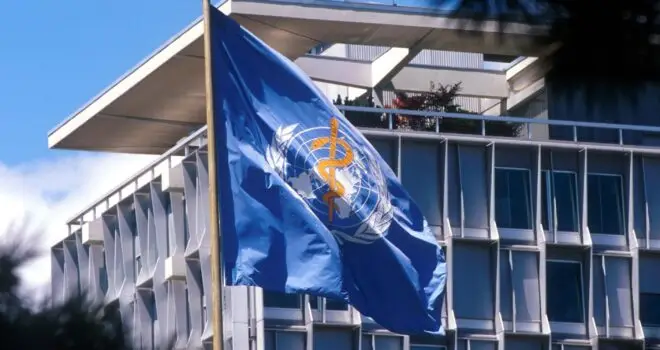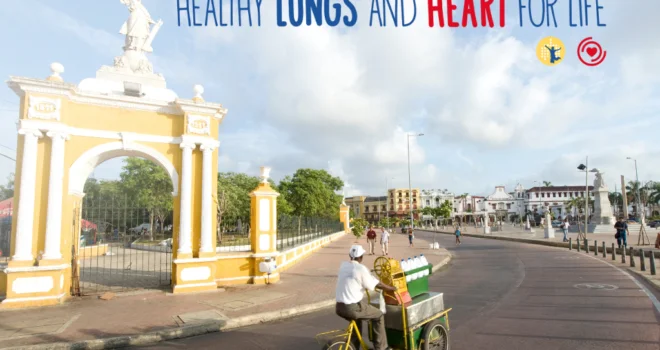The European Respiratory Society (ERS) and thirteen partner organisations have written to the World Health Organization (WHO) to call on WHO to proceed with the rapid publication and dissemination of the 2021 update to the WHO Global Air Quality Guidelines (AQGs). Read the open letter below.
We are leading medical, public health, and scientific societies and patients’ organizations in respiratory and cardiovascular health and oncology. Our membership includes thousands of health care providers and environmental and occupational health experts who play a leading role in the profession. Our societies have provided several joint and/or individual statements on the link between air pollution and diseases of the respiratory and cardiovascular systems, as well as adverse effects on diabetes, reproductive outcomes, and the neurologic system in both children and adults. We recognize that air pollution is one of the most important causes of mortality and years of life lost worldwide. Outdoor and household air pollution together accounted for 12% of all global deaths in 2019 and ranked 4th for attributable disease and mortality among major risk factors evaluated in the Global Burden of Disease study, only after hypertension, smoking and dietary factors. Air pollution deserves effective policy actions from governments worldwide in order to save human lives and protect public health.
The WHO is in the process of publishing the updated Global Air Quality Guidelines (WHO AQG), after the last release in 2005. This event will come after years of intensive research and deliberations with experts across the globe. We expect that the new WHO AQG, while considering all the relevant scientific literature, will be ambitious and will influence air quality policy across the globe for many years to come.
While the concern for health is greatest in places experiencing the highest exposures, already published scientific evidence commissioned by WHO in preparation for the WHO AQG also indicates an urgent need to lower air pollution concentrations at every level, as there is no known threshold below which air pollution is safe. The benefits are clear: lowering concentrations of air pollutants will lead to
enormous improvements in public health while, at the same time, reducing emissions of greenhouse gases such as carbon dioxide that cause climate change.
For the reasons indicated above, we urge WHO
- to proceed with a rapid publication of the updated Global Air Quality Guidelines to readily inform institutions, organizations, and people worldwide;
- to provide the highest level of dissemination of the Guidelines using all possible public information instruments in its capacity to parallel the wide importance of the product.
- to use all communication techniques to spread the evidence so that target audiences can better understand the societal benefits of cleaner air, including official correspondence with the Member States, media, video channels, and scientific publications.
To this end, the undersigned societies are willing to help WHO in the dissemination and communication process as soon as the WHO AQG are published, including presentation and discussion of WHO AQG at scientific meetings and conferences, communication with policy makers and patient representatives, and discussions with the press and other media.
Given the importance of the issue, we really hope that our request will be considered. We are looking forward to receiving your positive response.
The European Respiratory Society, supported by the undersigned organisations:
Prof Anita K. Simonds, President, European Respiratory Society
Prof Fausto Pinto, President, World Heart Federation
Dr Sonali Johnson (PhD), Head, Knowledge, Advocacy and Policy, Union for International Cancer Control (UICC)
Prof Guy Marks, President, International Union Against Tuberculosis and Lung Disease
Dr Jukka Takala, President, International Commission on Occupational Health
Prof Christine Jenkins AM, Chair, Lung Foundation of Australia
Dr Kjeld Hansen, Chair, European Lung Foundation
Prof John Upham, President, The Thoracic Society of Australia & New Zealand
Karen J. Collishaw, Chief Executive Officer, American Thoracic Society
William G. Cance, MD FACS, Chief Medical and Scientific Officer, American Cancer Society, Inc.
Terry Dean, President and CEO, Canadian Lung Association
Dr P.P. Mohanan, President, Cardiological Society of India
Prof Philip J. Landrigan, President, Collegium Ramazzini
Mark Nieuwenhuijsen, President, International Society of Environmental Epidemiology

